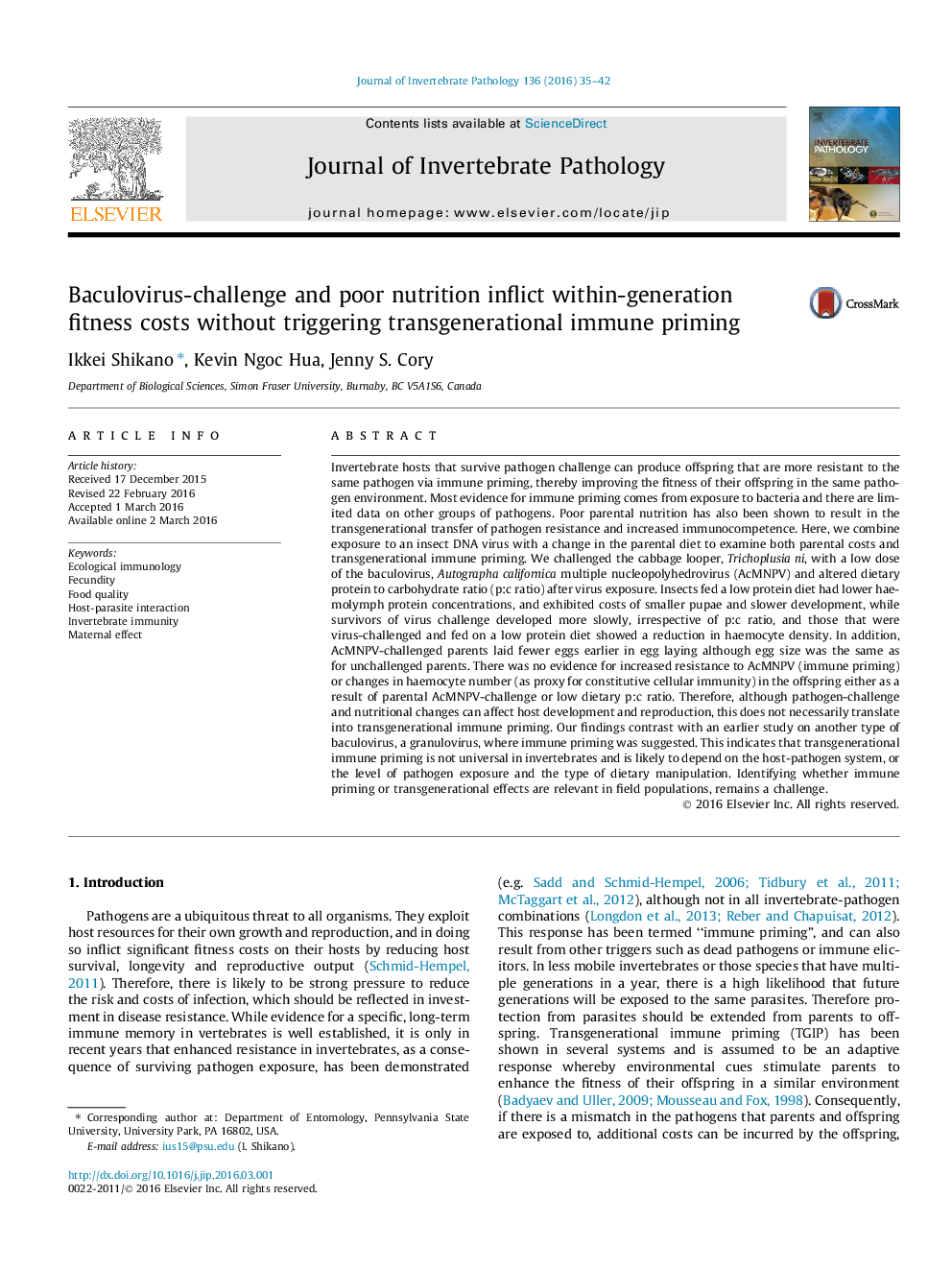| Article ID | Journal | Published Year | Pages | File Type |
|---|---|---|---|---|
| 4557579 | Journal of Invertebrate Pathology | 2016 | 8 Pages |
•Surviving AcMNPV challenge delayed pupation and egg-laying in cabbage loopers.•Lower diet quality slowed growth and reduced pupal weight and fecundity.•Combining the stressors synergistically reduced haemocyte numbers.•There was no elevated virus resistance or altered haemocyte density in offspring.•Transgenerational immune priming may depend on condition and host-pathogen system.
Invertebrate hosts that survive pathogen challenge can produce offspring that are more resistant to the same pathogen via immune priming, thereby improving the fitness of their offspring in the same pathogen environment. Most evidence for immune priming comes from exposure to bacteria and there are limited data on other groups of pathogens. Poor parental nutrition has also been shown to result in the transgenerational transfer of pathogen resistance and increased immunocompetence. Here, we combine exposure to an insect DNA virus with a change in the parental diet to examine both parental costs and transgenerational immune priming. We challenged the cabbage looper, Trichoplusia ni, with a low dose of the baculovirus, Autographa californica multiple nucleopolyhedrovirus (AcMNPV) and altered dietary protein to carbohydrate ratio (p:c ratio) after virus exposure. Insects fed a low protein diet had lower haemolymph protein concentrations, and exhibited costs of smaller pupae and slower development, while survivors of virus challenge developed more slowly, irrespective of p:c ratio, and those that were virus-challenged and fed on a low protein diet showed a reduction in haemocyte density. In addition, AcMNPV-challenged parents laid fewer eggs earlier in egg laying although egg size was the same as for unchallenged parents. There was no evidence for increased resistance to AcMNPV (immune priming) or changes in haemocyte number (as proxy for constitutive cellular immunity) in the offspring either as a result of parental AcMNPV-challenge or low dietary p:c ratio. Therefore, although pathogen-challenge and nutritional changes can affect host development and reproduction, this does not necessarily translate into transgenerational immune priming. Our findings contrast with an earlier study on another type of baculovirus, a granulovirus, where immune priming was suggested. This indicates that transgenerational immune priming is not universal in invertebrates and is likely to depend on the host-pathogen system, or the level of pathogen exposure and the type of dietary manipulation. Identifying whether immune priming or transgenerational effects are relevant in field populations, remains a challenge.
Graphical abstractFigure optionsDownload full-size imageDownload as PowerPoint slide
